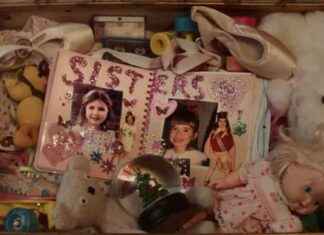“Gisèle used to say, ‘We don’t beg for a just right; we are fighting for him, ”recalls Roselyne Bachelot, who led one of her last battles with Gisèle Halimi, that for parity in political institutions. This life of struggles of the feminist lawyer, who died in July 2020, is told by Cédric Condon and Jean-Yves Le Naour, with the historical advice of Catherine Valenti. “Hoping,” says director Cédric Condon, “that its strength continues to inspire vocations as women’s rights regress in the United States, Italy or France – where the numbers of feminicides are on the rise again. »
From the wounds of childhood in Tunisia in the 1930s, to her fight for parity in politics at the end of the 20th century, Gisèle Halimi marked the law in France, and the institutions that produce it, far beyond the feat of legalizing abortion and criminalizing rape in the 1970s. By what miraculous strategy? That of politicizing legal affairs, with a loud and clear verb, a determination and a courage that always commands admiration.
The film shows how this “ball of indignation”, as former minister Jean-Pierre Chevènement calls it, fought hard, with the help of Simone de Beauvoir in particular, to bring justice out of court. Or more precisely to bring the whole of society into it so that it questions itself, transforming the trial of an Algerian separatist into a platform against the torture practiced by the French army, that of a woman who had an abortion into a trial of law prohibiting abortion or rape case in male dominance trial.
“Changing Society”
“The fight of women cannot be punctual: the fight of women is to change society, to change relationships”, she said. Thus, in 1981, Gisèle Halimi was elected deputy, affiliated with the Socialist Party. In hollow, the documentary says the renunciations of the left and the lucidity of the lawyer who, not fooled by François Mitterrand’s attempts to recover, will end up leaving the institutional gag to move forward.
In an effective form where archives, testimonies of her sons (Jean-Yves Halimi and Emmanuel Faux) and political figures are intertwined, the film sparkles thanks to the clear words of the tireless activist. We enjoy hearing him scrap again on the sets, in the street and in court. “Leave aside Roselyne Bachelot, she’s a rude woman”, believes she can tell Senator Jacques Larché on television. “The Senate is not stupid, it can change, it is only misogynistic”, quietly replies the one who has never been cold-eyed.
Violaine Lucas, president of the association Choisir la cause des femmes, concludes this invigorating documentary ideally: “There are many women to whom she gave life, in a way. »







